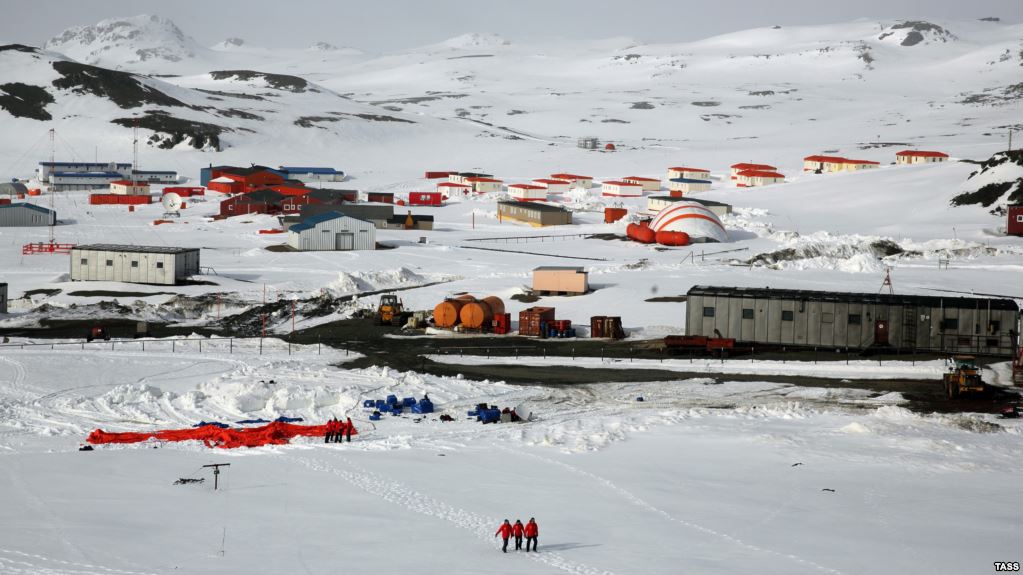
An Antarctic researcher at a remote Russian science station has been charged with attempted murder after stabbing his colleague in a sudden outburst of violence.
According to Russia’s Interfax news agency, Sergey Savitsky attacked his fellow scientist on October 9, possibly after experiencing an emotional breakdown, stabbing him at least once.
The two men had been living and working together for six months at Russia’s Bellingshausen station on King George Island, more than 500 miles off the southern coast of Argentina.
Interfax reported that the attack took place at the station’s canteen. The agency said Savitsky deliberately targeted his colleague, named only as B, and went after him with a knife. The attacker later surrendered to the station manager without resistance.
The injured researcher was sent for medical treatment in Chile while Savitsky was placed under house arrest at the base until December 8. Russian authorities have not yet commented on the attack, The Guardian reported.
The Bellingshausen station, built in 1968, was one of the first Antarctic research facilities established by the Soviet Union. It is named for the the 19th-century Russian Antarctic explorer Fabian von Bellingshausen.
The base sits 650 feet from Chile’s primary Antarctic outpost, the Frei facility. Several other stations are nearby, including Chile’s Escudero center, Uruguay’s Artigas base and China’s Great Wall outpost. Brazil, Peru, Colombia, Argentina, South Korea and Poland also maintain permanent stations on King George Island.
Early Antarctic research outposts were spartan affairs made of simple, cheap materials, designed for survival but not for comfort. But as more nations establish stations of their own, the sophistication of such missions has increased. The largest permanent mission remains the American McMurdo research station, which has a peak summer population of 1,200 people.
Investigating crimes committed in Antarctica poses unusual challenges. The 1961 Antarctic Treaty states that the continent belongs to no one nation. Argentina, Australia, the U.K., Chile, France, New Zealand and Norway all have territorial claims on the icy land, though none are recognized by the treaty.
Around 30 nations, including the U.S. and Russia, maintain research teams in Antarctica either seasonally or year-round. Each country’s jurisdiction is generally accepted at its own facilities.
In this case, because the crime took place at a Russian base and involved Russian researchers, Savitsky’s home country will take responsibility. Some observers have proposed a new Antarctic treaty to produce a unified criminal code that all residents of the continent could adhere to.













